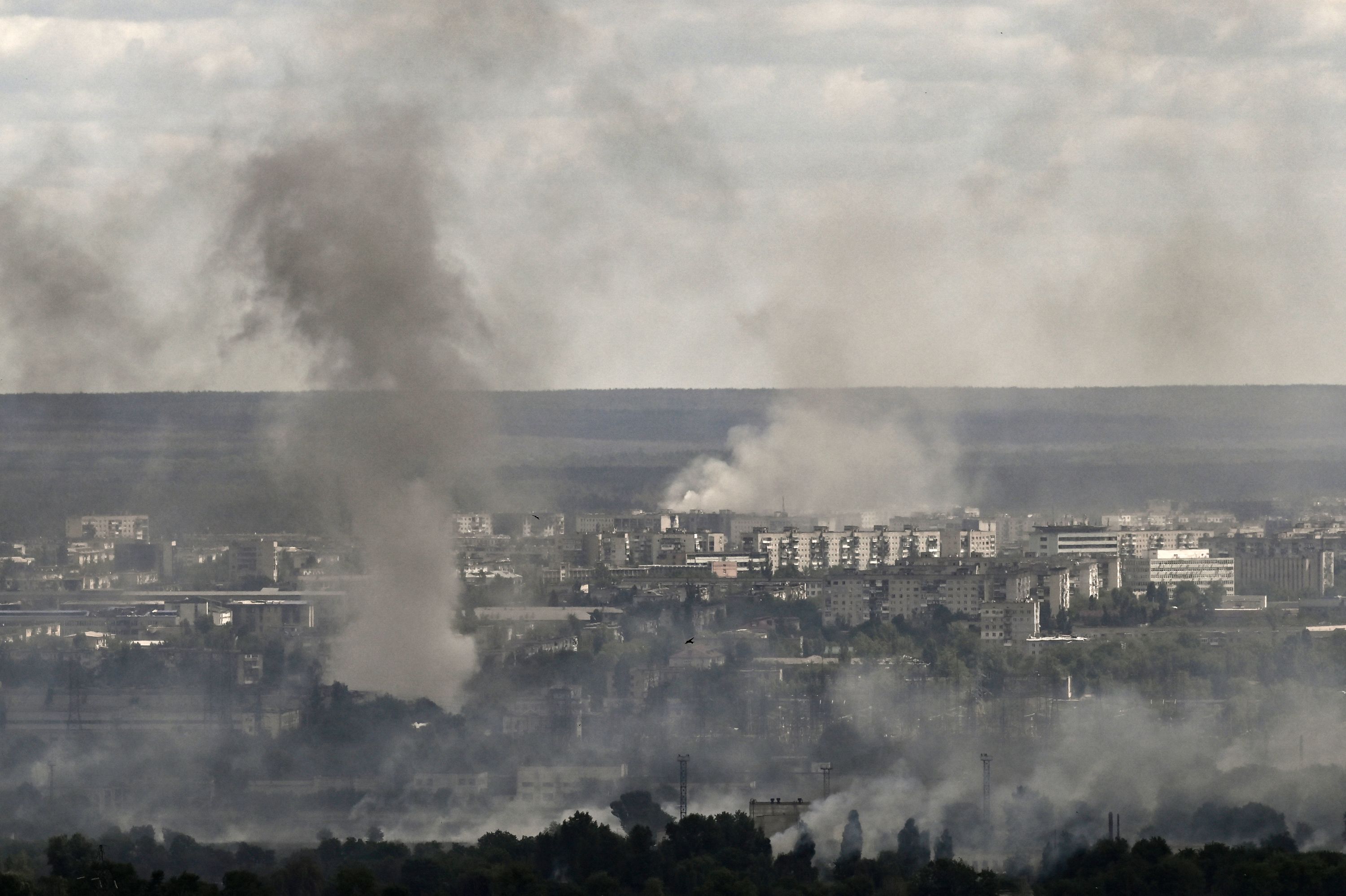War in Ukraine also an 'attack on environment': Germany
Sign up now: Get ST's newsletters delivered to your inbox

Smoke rises from shelling in the city of Severodonetsk in Ukraine on June 7, 2022.
PHOTO: AFP
SINGAPORE - Russia's invasion of Ukraine is also a "massive attack on the environment", as Moscow has adopted a scorched-earth approach in its war on the sovereign nation, a senior German minister said on Saturday (June 11).
"We have talked about the security risks of climate change, but there is also the climate risk that comes with war... It's a vicious circle," Dr Tobias Lindner, Germany's Minister of State at the Federal Foreign Office, said at the Shangri-La Dialogue in Singapore.
"The Russian invasion isn't just a violation of international law - it's also a massive attack on the environment," he told a panel of experts discussing climate security and green defence at Asia's top security summit.
Moscow's near-strikes at nuclear plants in Ukraine and its "scorched-earth approach" in bombing oil refineries and chemical facilities causing "a massive spill of toxic waste" into the Sea of Azov, have all contributed to extensive environmental damage amounting to several billions of euros, Dr Lindner said.
"Climate change increases the risks of conflict, and conflict in return has an extremely high carbon and climate cost."
Asked by a researcher from China's military delegation if resisting the global competition to boost countries' defences should constitute a fundamental measure in green defence, the German minister responded that "the best way to avoid a race to arms is to respect international order".
Russian President Vladimir Putin "has questioned the statehood not only of Ukraine, but also Sweden", Dr Lindner said.
"It's the sovereign right of European countries to work on a credible deterrent to stop and at least contain him so that he might not go further than Ukraine."
Making reference to the now-defunct Intermediate-Range Nuclear Forces (INF) Treaty as he called for China’s support to work towards ending the proliferation of arms among nations, Dr Lindner said: “The time of arms control is not over."
The historic INF treaty between the United States and Russia banned both nations from having land-based missiles with range capabilities between 500km and 5,500km.
It was the first such pact to abolish an entire category of weapons systems, but the US withdrew from it in 2019, citing among its key reasons a growing need to counter China’s rapid arms build-up in the Pacific.
“I would very welcome the idea if we could go back to such a treaty,” Dr Lindner said. “We need China as a partner and need to involve the Europeans… That would make this planet more safe.”


